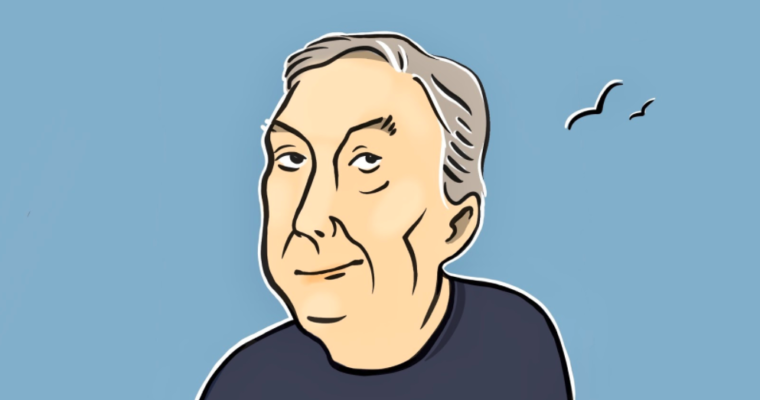Rob Johnson, President of the Institute for New Economic Thinking, is not your average economist. He’s got heart and soul, or if you’ll have it, the blues! With his deep connection to the arts and humanities, Rob leads the new economic thinking not just with a sharp mind, but also with sensibility.
This article is part of an ongoing series in which Rob shares his life experiences, and biggest lessons learned. If you’re an aspiring expert in economics or a related field, this is for you. It might mitigate the depth and duration of your mid-life crisis. Earlier articles in this series can be found here.
7 – On Doing Structural Analysis Before the Internet
My time as a trader taught me a few important lessons.
One, economics can show you where the questions and opportunities are. But, two, you got to get on an airplane and go see it with the whites of your eyes, because it’s about timing. If you short the Spanish peseta and you’re three months early, then you’re paying twenty-four percent interest and earning five; you’ll lose a lot! You have to be mindful of timing, and in those days, that meant being close to things.
Back then, there were very few people who did real, structural analysis, especially of the intra-Asian economy. So, when I was working on that region, we looked at the commodity composition of the economies; the exports and imports of each of the Asian countries, and the geographic composition of who their trading partners were. So, if, say, the Japanese economy is going up and the U.S. is decelerating, you could see that one country would be affected more negatively than another. Or when the terms of trade would change in a particular sector, you could tell who would get hurt or benefit.
During my time at Bankers Trust, I met a guy named Rodney Jones, who understood this well. He was based in Malaysia, and I had taken a position against the Malaysian ringgit. When we first got talking, he was at an equity firm. He asked me “are you actually interested in this macro stuff?” And I said, yes, let’s talk. So over cocktails, Rodney told me that what he does is he gets on an airplane every month and he goes around twelve different countries, collects all the data on budgets and central bank reserves, and builds his own structural database! I hired him, first to Bankers Trust and then I brought him with me to Soros. He now runs a major consulting firm based out of Beijing. He’s brilliant.
In the end, speculation is about knowing what the world thinks, seeing something that’s different, and then: timing. You have to know when the world will come around and see what you’re seeing; you have to know what the catalyst for that will be.
When I was in this business, with Rodney and others, we knew that the insights we produced with our own models were not yet reflected in the prices. And a significant part of it was about being well-connected and having access to the information. I used to have a foreign exchange dealer I relied on in New Zealand because they’d open on Sunday morning. I could call them and find out what everyone is lining up to do that week. They’d have their finger on the pulse.
At times, it almost felt like taking candy from a baby. Because you could just see it. You could work with a handful of people very quietly, and figure out the insights you needed to make a profitable trade. But the times did change, and the world did catch up.
Already when ERM blew up, Reuters came to focus on that, which made me lose my edge in Europe a bit. So that’s what made me think, let me go into Asia, and build that out. That was great. But then the Asian crisis rolled around, and with that, I lost my edge there, too. At that point, I’d joke, saying, “I try to go where other people don’t understand what’s going on. I guess I wish they had asset prices on Mars because it seems like Earth was running out of places.”
Now, things are different. You can set up spreadsheets in Bloomberg, and when you wake up in the morning, there’s all this new data, updated for you, and the communication flows go everywhere. In my days, we had a fax machine. It was more about fieldwork.
And for me, personally, I never really thought of myself as an investor. I was focused on deepening my understanding of planet earth. But all of a sudden, people did put me on first-class airplanes, bought me electronic machines, and wanted to make deals left and right. I was meeting everybody all over the world.
It was a hell of a learning platform. But at some point, it was exhausting, and stressful for my family. So, ultimately, I chose to make the hedge-fund industry a chapter of my life, not the book…
Earlier articles in this series can be found here.
Subscribe to receive the next article directly to your inbox! And in the meantime, take a look at Rob’s podcast Economics and Beyond, available wherever you get your podcasts.
